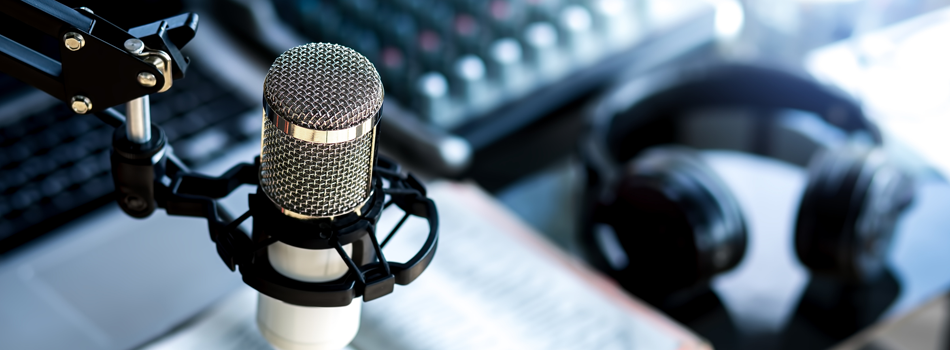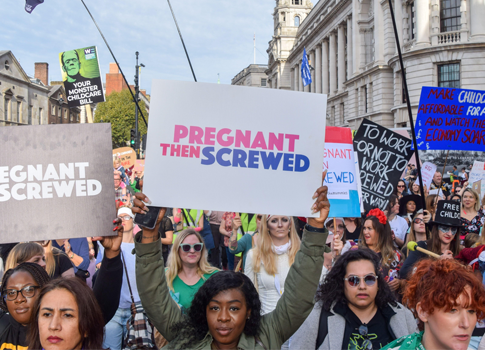Tuning in, an event hosted by Radiocentre (UK’s industry body for commercial radio), recently shared findings from their Listen Up study, exploring how radio can compete in the ever-evolving media landscape. Interestingly, the topics were surrounding the specific subject of System 1 ideologies, inspired by the work of Orlando Wood, author of Lemon, 2019 and Look Out, 2021 on how brands can achieve short term and long term objectives by evoking human emotions more creatively.
What do we mean by System 1 ideologies?
System 1 refers to the innate mental activities and emotions within us that help us perceive the world around us by tapping into either the left or right side of the brain. When it comes to making use of this in our industry, the left and right sides of the brain can drive very opposing results, yet both hold great strength if harnessed correctly. The left side is receptive to short term messages such as facts, sales or time sensitive information. Alternatively, the right side of the brain is much more emotional and can be activated by more dramatic intimacy and purpose driven messages that create an emotional connection.
System 1 principles could be the beating heart of creative decisions that can lead to transformable business results. Understanding how and why to activate it is the first step in transforming your brands power in audio.
How can brands harness System 1 ideologies to create effective audio campaigns?
Audio is often overlooked when we speak about creating an emotional connection with the audience, but it doesn’t have to be! The growing research and tools available means that we can create and identify the effectiveness of audio, and even inspire a new generation of audio creativity.
Orlando Wood suggests that “introducing left and right brain creative principles for audio can harness a trusted and intimate medium to drive mental availability for your brand, using the brushstrokes of voice, dialogue, narrative, music and drama.” To do this, the message should provide something meaningful or relevant to the listener and be distinctive for the brand by thinking outside of the box and standing out. Brands like Specsavers and Moonpig have done this well, with their humorous, creative campaigns successfully managing to capture of the listener’s ears and attention.
Brands need to find their unique position in the landscape; to be the role models of effective marketing by considering not only the short term sales but the long term effects they have on people – this is what sets successful brands apart from the crowded advertising space. Ultimately the way to do this is to venture for a brand identity, commit, and nurture and it will become almost unshakeable in anything it endeavors.
How can evoking an emotional connection improve effectiveness?
There is good reason as to why an emotional connection to a consumer improves effectiveness. The System 1 ideology allows the brand to tap into what is already available within our biology – by activating or leaning on the various segments of our brain and/or emotions, tactically, adds power to a message and creates a natural force for someone to use their senses, becoming alert and present to the ad. This can result in a huge improvement in ad recall, as it was seen and/or heard in a conscious state.
The power of this ideology can create a strong bond by speaking to people in ways in which they will openly receive in the moment. By creating a bond you earn organic trust, improve memory and even provoke emotion. These are all processes that the brain controls and regulates, potentially meaning that once you have made an impression your future efforts will go further, which is why targeting the brain’s functions can make a brand successful.
If a brand is looking to transform their relationship with the customer, there are many things to consider such as; being experimental and creative, gaining a voice in markets that they don’t dominate, being distinctive and recognisable, consistent and relatable.
Summary: Radio could be the key to effectiveness currently missing from your media plan
Radio is already a well trusted platform that can be elevated with behavioral planning from the creative stage, all the way through to activation – similar to the effectiveness of TV. Radio isolates the sense of sight and heightens our sense of sound enabling the platform to dive into the unique opportunity of crafting stories and sounds to provoke emotion, which can foster a greater connection between your brand and your audience. Furthermore, radio activates the here and now by commanding action, which can drive your audience further down the tunnel. Therefore, the impact of radio is often underestimated by media planners, providing a unique opportunity for your brand to do something powerful with sound to help stand out from the crowd.
For more information contact our specialist Broadcast team today.






